Neighbors at odds over buy-outs in bayshore villages in Cumberland County, N.J.
Listen-

-
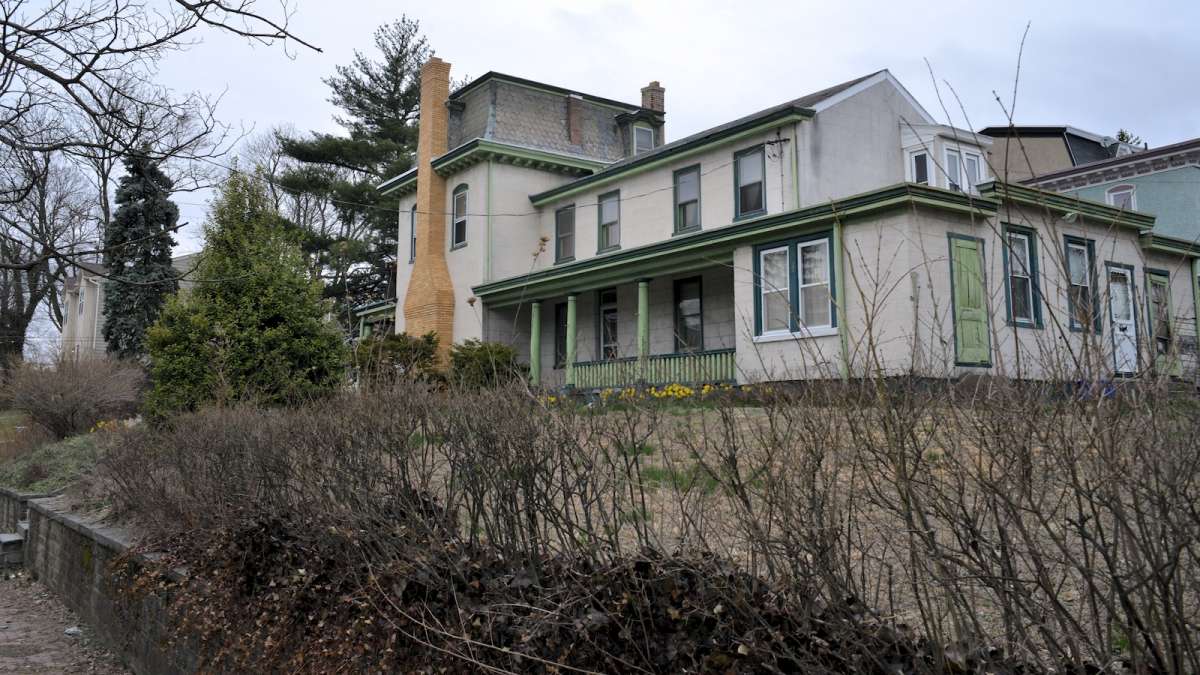
-
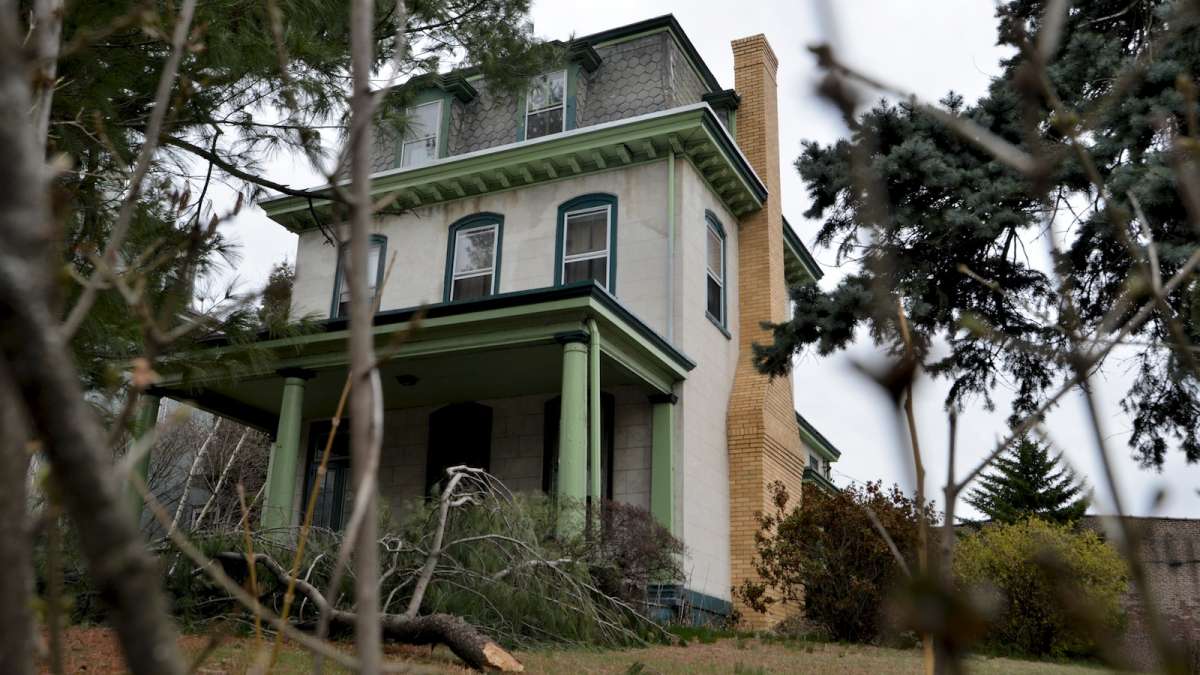
-

-

<p>(Chuck Snyder/for NewsWorks)</p>
-
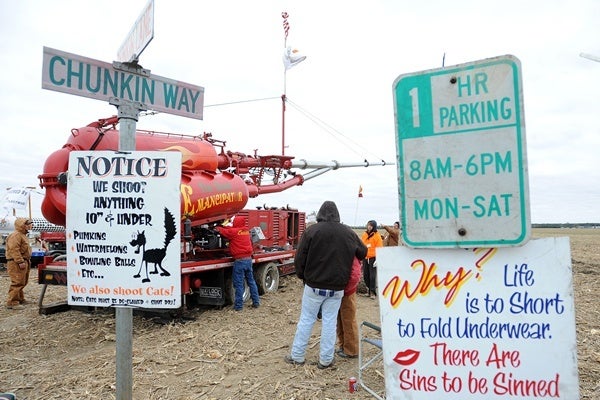
<p>The Emancipator team sets up at the intersection of Punkin Lane and Chunkin Way. (Chuck Snyder/for NewsWorks)</p>
-

<p>There was no shortage of characters at Punkin Chunkin. (Chuck Snyder/for NewsWorks)</p>
-

<p>A trebuchet in action (Chuck Snyder/for NewsWorks)</p>
-

<p>(Chuck Snyder/for NewsWorks)</p>
-

<p>Just a few days after Halloween, but it's never too late to dress up like a pumpkin. (Chuck Snyder/for NewsWorks)</p>
-

<p>Not only does this hat celebrate Punkin Chunkin, it also looks very warm. (Chuck Snyder/for NewsWorks)</p>
-

<p>In addition to the air canons, trebuchet and torsion machines are also used to throw pumpkins. (Chuck Snyder/for NewsWorks)</p>
-

<p>Watching them fly (Chuck Snyder/for NewsWorks)</p>
-

<p>Be the pumpkin! (Chuck Snyder/for NewsWorks)</p>
-

<p>A chilly weekend couldn't keep hundreds away from the November tradition in Bridgeville. (Chuck Snyder/for NewsWorks)</p>
-

A pumpkin cannon fires at the Punkin Chunkin event in 2012.(Chuck Snyder/for NewsWorks)
-

<p>The face of excitement at Punkin Chunkin 2012. (Chuck Snyder/for NewsWorks)</p>
-

(Chuck Snyder/for NewsWorks)
-
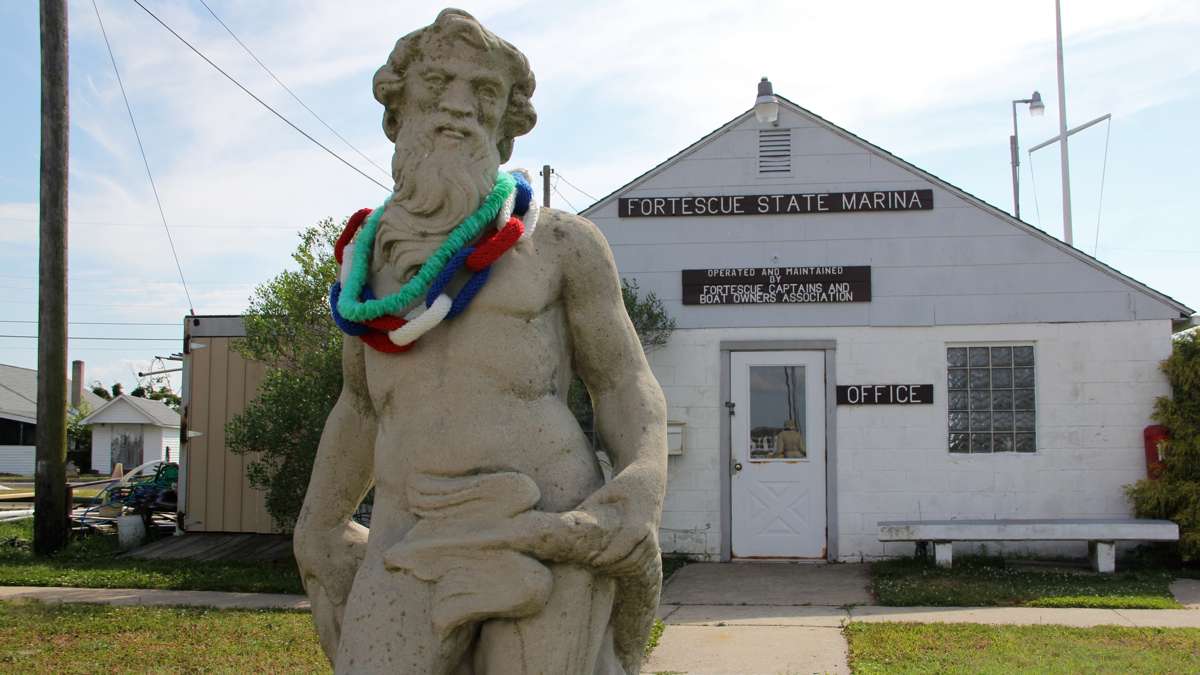
-

-

-
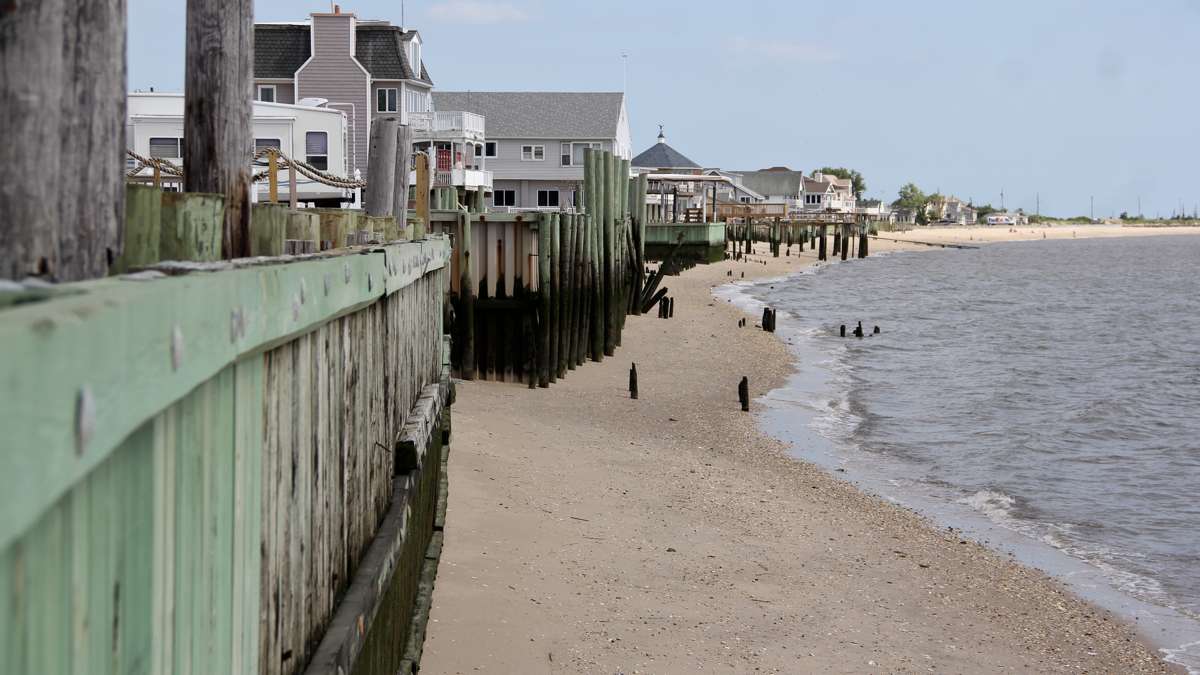
-

-

-
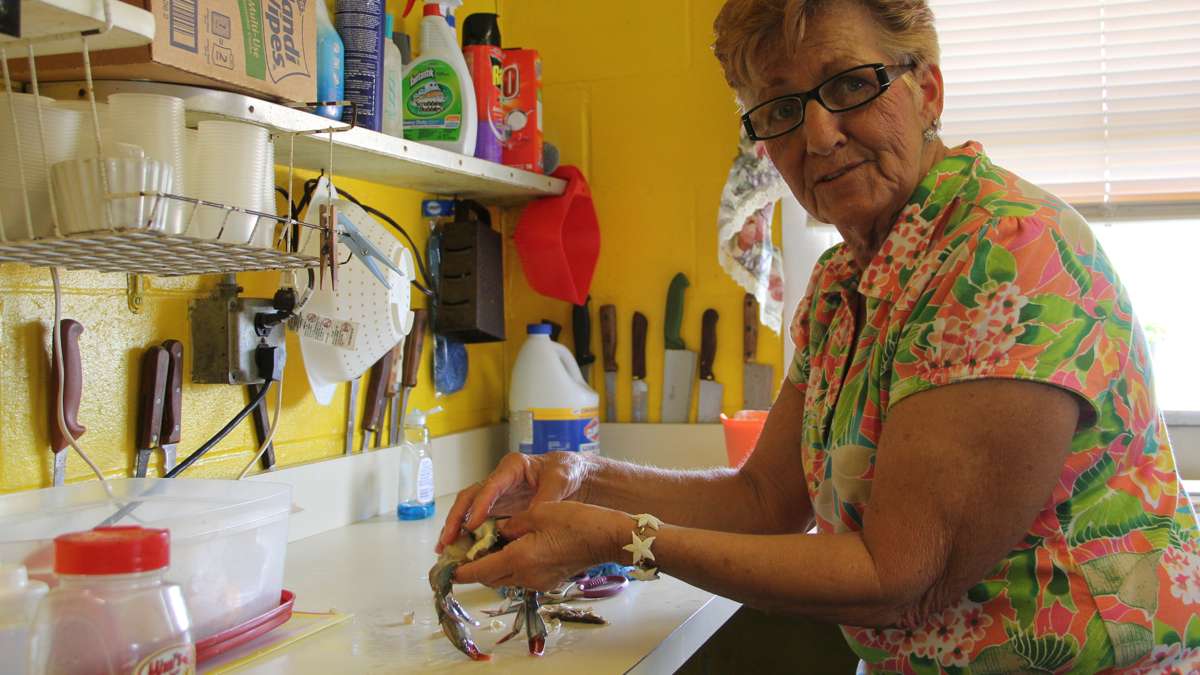
-

-
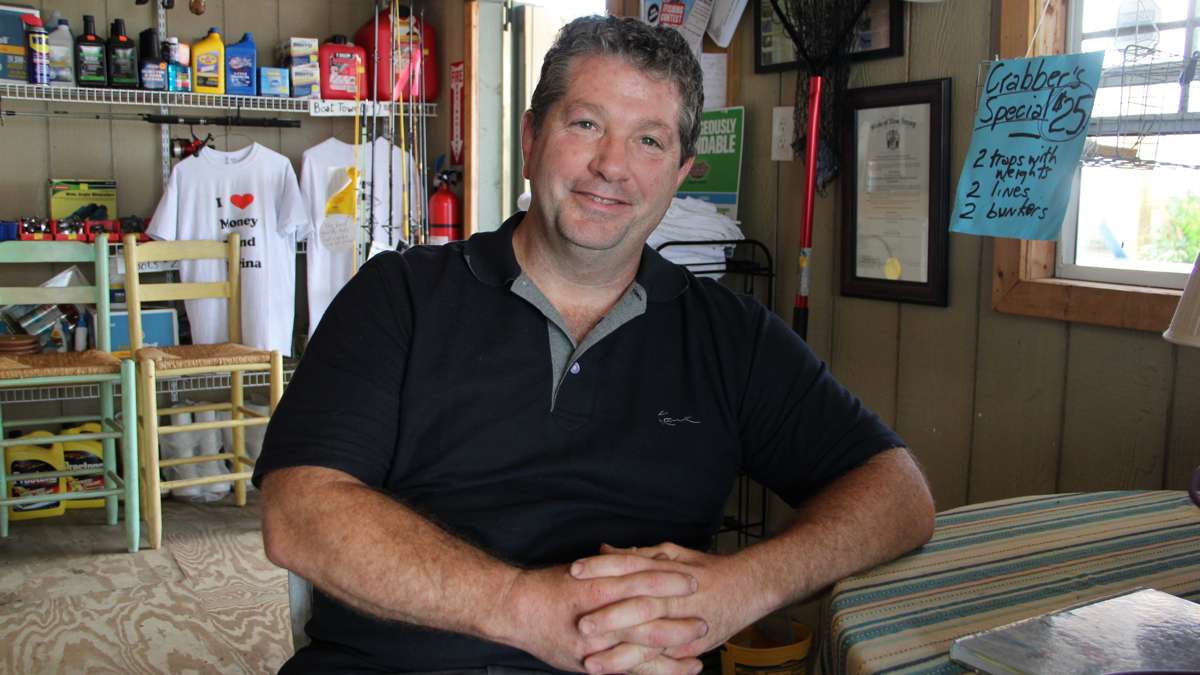
-
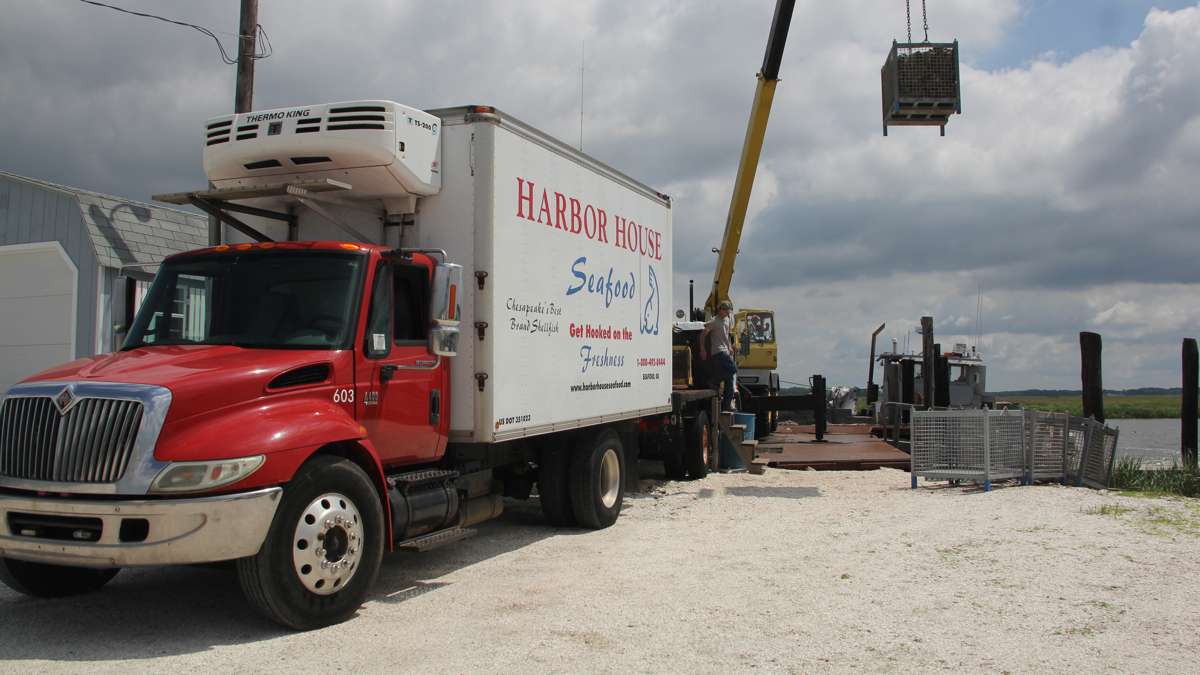
-

-

-

-

-
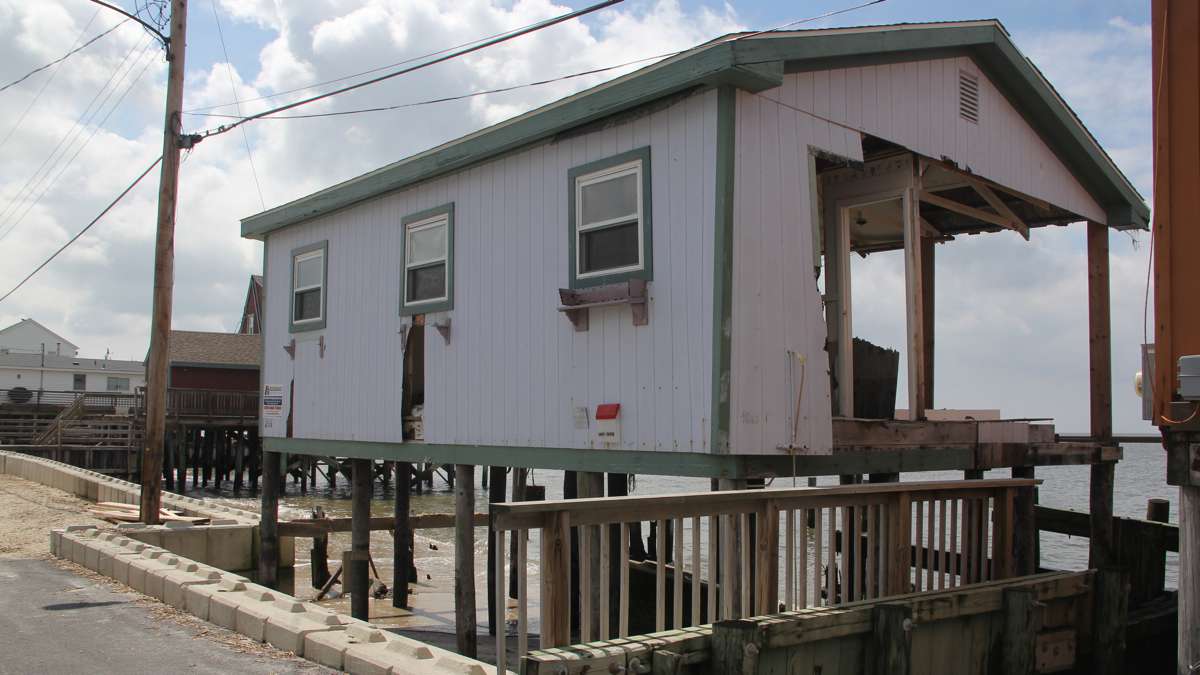
Fortescue, a small New Jersey fishing village in Downe Township, Cumberland County, was made by the Delaware Bay. The seemingly endless bounty of the bay drove fishing boat captains to use the river inlet as an overnight base, rather than sail all the way home.
The bay has threatened to take it back. When Hurricane Irene hit the village in 2011, residents recovered with the help of FEMA. But when Superstorm Sandy tried it again in 2012, Fortescue was not so lucky.
“Sandy was completely different. The damage and devastation was 10 times what Irene was. We lost 30 homes on the beach. The infrastructure, roads, bulkheads were destroyed,” said Downe Township mayor Robert Campbell.
“You probably heard on the news that there was $3 billion of money given to the state for Sandy recovery,” he said. “Cumberland County didn’t get one penny.”
The problem with Downe Township is nobody lives there. Geographically, it’s more than four times larger than Atlantic City, but it has a population of about 1,500 — about 1,400 of whom live within 10 feet of sea level.
Rather then pour vast amounts of money into repairing infrastructure for a few hundred people, New Jersey’s Department of Environmental Protection has instead initiated a process of managed retreat: offering to buy people out of their properties and turn them into a wildlife refuge, requiring little to no maintenance.
It also generates no taxes.
No retreat
“Eighty percent of our township is wildlife protected, tax-exempt, state land,” said Campbell. “We have no more land left. It’s all protected. All our tax revenue comes from three bayshore communities. We can’t afford to lose one property on the bayshore.”
Nearby communities, such as Bay Point a few miles north, have largely accepted the DEP’s offer through its Blue Acres buy-out program. The town of Sea Breeze has already disappeared, its last structures were torn down by the state in 2012.
Fortescue is digging in its heels. Here there are bumper stickers everywhere that read “No Retreat.” Downe Township’s Gandy’s Beach, a community of a few dozen homes along a single beachfront street, lost its marina completely. Nevertheless, construction cranes prove its homeowners are determined.
Time to get out
“Most people don’t know there’s a west coast shore of New Jersey. It’s a place that’s totally foreign for most Philadelphians, as it was for me,” said Tony Novak, an accountant and environmental activist who discovered Cumberland County by chance 30 years ago and never left. “I had no idea about the Delaware Bay — the culture, the economy, and the mindset. This is the deep south.”
Novak lives in Money Island, a saltmarsh peninsula in Downe Township, between Fortescue and Bay Point. This is where “no retreat” meets pro-retreat.
“On my road there are about 10 habitable houses. About seven have not been occupied for any significant amount of time. They have sat empty,” said Novak. “Although they have put stickers, ‘No Retreat,’ on their deck, that is not their actions. They are not committed here. This is a ghost town.”
Novak wants to get out. He owns 17 lots in Money Island, plus the Island’s marina, and has been talking to the DEP about selling the whole package at a loss.
He says it is not the rising sea levels that doom Money Island, it’s property taxes. Beachfront houses are taxed based on assessments of more than twice what they can be sold for on the market. A homeowner paying $2,500 in taxes can sell — if lucky — at about $20,000.
“The chances of a ‘no retreat’ policy for residential communities on the Delaware Bay is very slim,” said Novak. “The ability to save our shoreline exists — we have the money. It’s the political will. It’s inconceivable for me — see the number of zeros on the bottom line — that we will save communities.”
Another factor dooming bayfront communities is the bulkhead. Each house is responsible for the maintenance of its seawall holding back the bay. If some homeowners opt for DEP’s managed-retreat model, the state will likely not maintain that protective wall. Once the water takes over one property, it moves laterally until all the neighbors are forced out, too.
The problem for Money Island oystermen
One thing Money Island always had is oysters. In the 19th and early 20th centuries, Cumberland County was one of the richest oyster-farming regions in the world. Due to overfishing and pollution, the oyster beds do not produce as well as they once did, but they still do a lively business.
“Today was a good day, and we were one man short,” said George Ellis of the Beverley Bailey, an oyster boat that uses Money Island to unload thousands of oysters a day. “Usually we get 160 bushel, today we got 158 with three guys.”
Ellis and crew need the Money Island marina to keep harvesting oysters. There is money to be had. Nevertheless, the owner, Tony Novak, wants the state of New Jersey to operate the marina because the cost of repairs and liabilities make private ownership impossible.
“This marina has violations long preceeding my involvement,” said Novak. “We presume they will go into six figures. No time soon is this marina going to come up with six figures.”
Novak’s pro-retreat views have not made him popular with some neighbors. It takes a community to survive the sea: If some leave, the rest may be forced to follow. He says he has received death threats.
Just fix what we have
Betty Higbee owns Higbee’s Diner, until recently the only surviving brick-and-mortar business in Fortescue (another restaurant recently opened with limited hours). She married into an old Fortescue family going back generations, and after 57 years she has become the town historian.
One the wall of her diner are pictures of old Fortescue, a time when many restaurants had their own fishing boats to catch the nightly specials themselves. “Can’t do that anymore,” said Higbee. “It’s illegal.”
Higbee says what is killing Fortescue is neither the sea, nor property taxes. She says government regulations make it impossible for the middle-class to recover from Sandy.
“Like raising your house 12 feet higher, and you have to have a new bulkhead, and a new septic system — that $25,000,” said Higbee. “People who had flood insurance thought they had enough — and they did — until the government said you need a new septic system, and raise your house.”
There is no sewage system in Fortescue. Every house has its own septic tank. Old, faulty, or leaking septic tanks cause rifts among neighbors. Patrons at Higbee’s Diner are told to use a chemical toilet in the parking lot.
Higbee points out the window of the diner, to a grand brick house across the street that is her family home, “the house that weakfish built.” Fortescue calls itself the weakfish capital of the world. The silvery, trout-like fish is also the official fish of State of Delaware, across the bay from Fortescue.
Due to overfishing, the Department of Fish and Wildlife has put severe restrictions on weakfish, limiting anglers to just one, at least 13 inches long. You can reel in five flounder, so long as they are at least 17.5 inches long.
“We’re in the same body of water as Delaware. Delaware can catch more flounder, smaller size,” said Higbee. “Same body of water, tighter regulations. Why not go to Delaware?”
Last year, officials and leaders from all the townships in Cumberland County drafted a Recovery Plan that pins its hopes on making the bayshore a tourist attraction. Idea that have been floated include a boardwalk on the Fortescue shoreline, and converting the rail tracks that used to haul tons of oysters up the coast into bike trails.
Higbee calls it “stupid.”
“Give us money to repair what we have,” said Higbee. “What we have is fine. We just need to repair it.”
WHYY is your source for fact-based, in-depth journalism and information. As a nonprofit organization, we rely on financial support from readers like you. Please give today.





